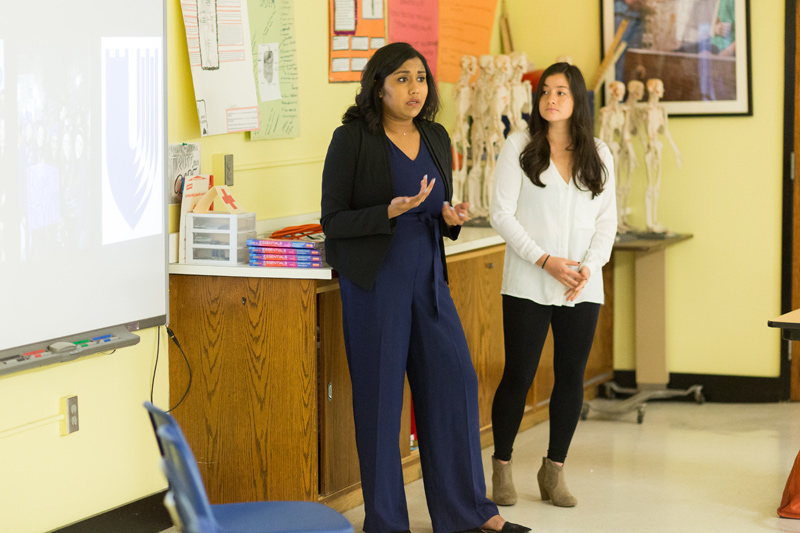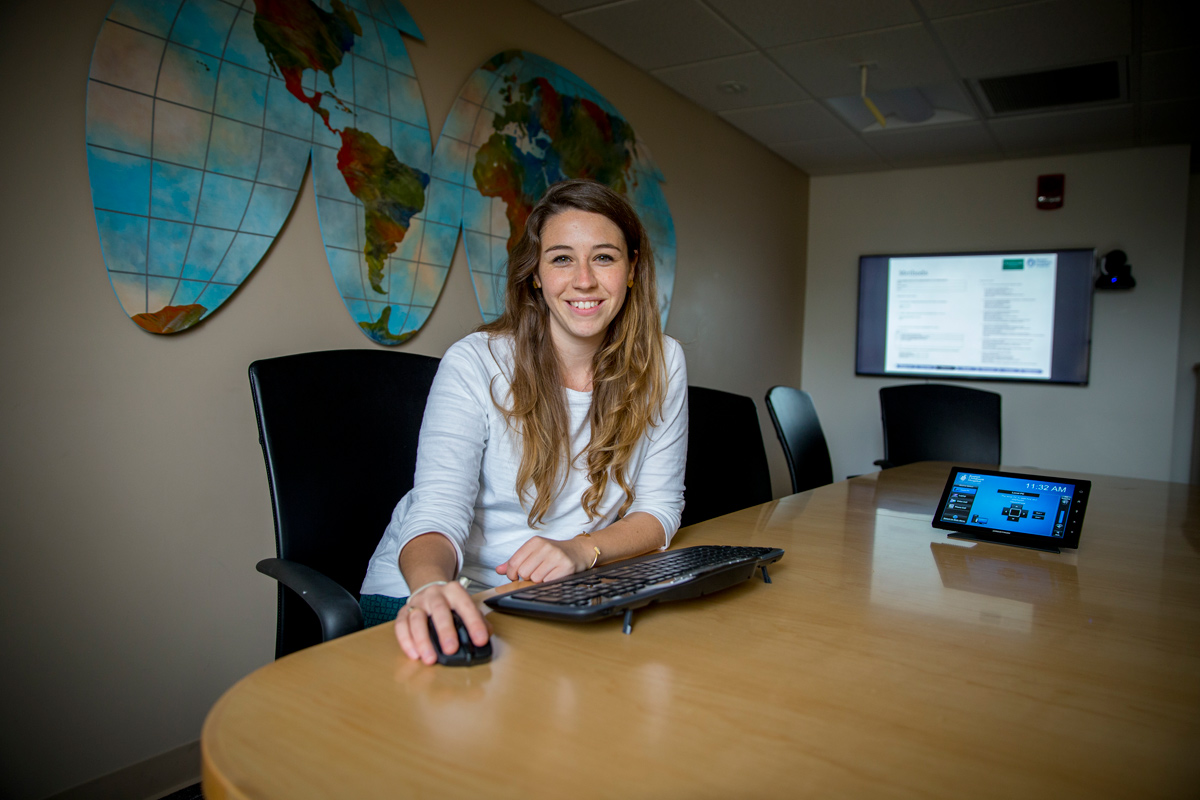MPH Internship Highlights: Creating a STEM Curriculum for High Schools & QI Work at Boston Childrens Hospital
A culminating highlight of Dartmouth's on-campus Master of Public Health program is the opportunity for students to take what they've learned out into the field. Our internship profile series looks at how they've applied what they learned to their own interests in improving health and healthcare.
Pathways: A STEM/Health Care Exposure Program
Sayoni Saha, MPH '17 and Sarah Bessen, MPH '17
 Public Health Issue to Address:
Public Health Issue to Address:
The number of jobs in STEM (science, technology, engineering, and math) fields is rapidly increasing in the U.S. However, only 16 percent of high school graduates are interested in a career in STEM, and only 28 percent of undergraduate students choose STEM majors. We wanted to encourage high school students in the Upper Valley to pursue STEM and healthcare careers by hosting focused panels and providing one-on-one mentorship.
Project Highlights:
We developed a 6-8-week educational program that we pitched to local high schools. We had the opportunity to implement our program at Hanover High School, the Hartford Area Career and Technology Center, and the Ledyard Charter School. Each week, we focused on a different topic in a STEM or healthcare domain. For our week on careers in surgery, we incorporated a banana suturing activity and led a panel with current medical students.
What was most rewarding was helping students learn about the collaborative nature of STEM and health care, including the less visible roles involved in the delivery of patient care. For example, we taught a case study on a celebrity who had a knee replacement. The case study was aimed at moving past the typical answers to the question, “Who was involved in the celebrity’s care?” We would get answers like surgeon, anesthesiologist, or nurse, which are all correct and important. To get students to think more outside the box, we would ask, “But, have you thought about who the engineer is that designs the joint that’s being replaced?” We then discussed how insurance providers' or x-ray technicians' roles could also influence the care of a patient undergoing surgery.
Career Goals:
Both of us will be attending medical school next year (2018), and we are excited to see first-hand how different career paths intersect in healthcare delivery. With so many different career options in STEM, we wanted to inspire students to explore career paths that aren’t always popularized in the media or on a TV show.
Sedation Weaning Practices in the Boston Children's Hospital MSICU: Measurement and Improvement
Allison LaRussa MPH'17

Public Health Issue to Address:
Children in the ICU are often sedated while on a ventilator to keep them safe and comfortable. However, providers have varying perspectives regarding best practices for weaning their patients off sedation as they prepare to remove the ventilator and get them ready to breathe on their own again. A lack of uniformity in practice can affect the quality of care that children in the ICU receive. Reducing the medication too quickly could cause withdrawal issues, while delaying the weaning could lead to longer ICU stays that are unnecessary.
Project Highlights:
I worked with the Quality Improvement team in Critical Care Medicine at Boston Children’s as well as with teams of nurses and providers to assess current practices and develop improvement strategies. We focused on assessing how well nurses and providers understand the scale they use to document and monitor patient sedation. We found there was some variation in how the scores were interpreted. We also noted that the description of the scores was often long and not always conducive for care teams to easily establish a quick check-in point for their patients. My final deliverable for this project was presenting a summary of these findings and working with the team to develop the next steps for improving these monitoring tools.
Career Goals:
I have a strong interest in quality improvement and wanted to see QI in its natural habitat, not just in a textbook. I also knew that I wanted to be in Boston working on QI after graduation. My advisor suggested I use my internship as an opportunity to start building my network in Boston. By reaching out to QI groups in Boston and leveraging professional and alumni contacts at Boston Children’s Hospital, I connected with a QI consultant at Boston Children’s. She thought this sedation project would be a good fit.
POSTED 8/18/2017 AT 08:14 PM IN #news #education #internship

